Women's football: FA has a new plan to boost diversity and equality in girls' football
- Published
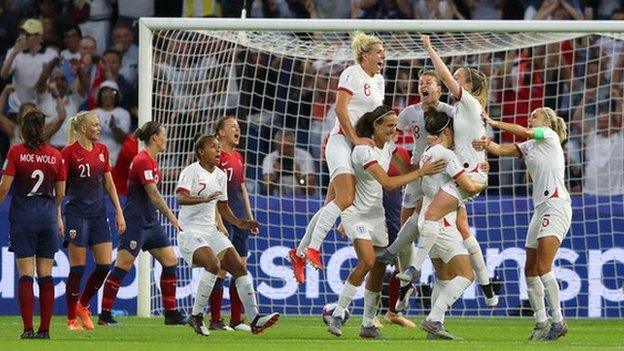
England beat Norway to reach the semi-finals of the 2019 Women's World Cup in France
The Football Association (FA) has launched a new plan for women and girls' football.
It's a four-year project called Inspiring Positive Change, and it aims to "create a sustainable future" for women's and girls' football in England.
The new strategy means football will be part of the PE curriculum in schools and has created a target for 90% of schools in England to be part of The FA Girls' Football School Partnerships network.
Girls in football: "I'm making a stand for girls in football"
What are the aims?
There are eight objectives that the FA want to achieve by 2024 - here are some of those aims:
Every primary school-aged girl should have equal access to football in school and in clubs
Every girl should have equal access to participate for fun, for competition and for excellence
The FA will work with clubs to develop an effective high-performance, inclusive pathway for players
Create the best professional women's sports leagues and competitions in the world
Recruit and support a motivated, diverse range of local leaders organising football for their communities
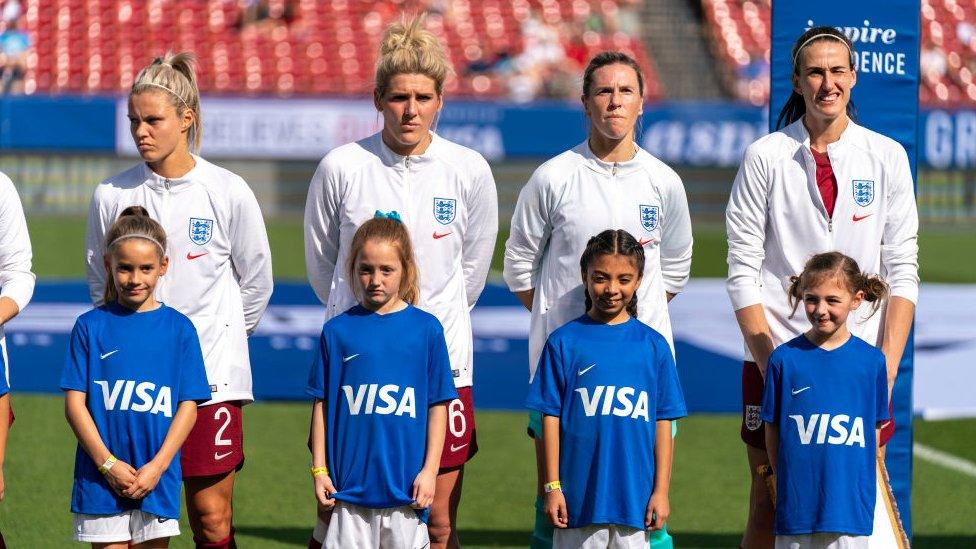
England Women have never won a major tournament
They also want England to win a major tournament and are focusing on the 2022 Women's Euros and the 2023 Women's World Cup.
Getting bigger audiences and making the women's game more attractive for football fans is also important for the FA, who want England to be known for its world-class leagues and competitions.
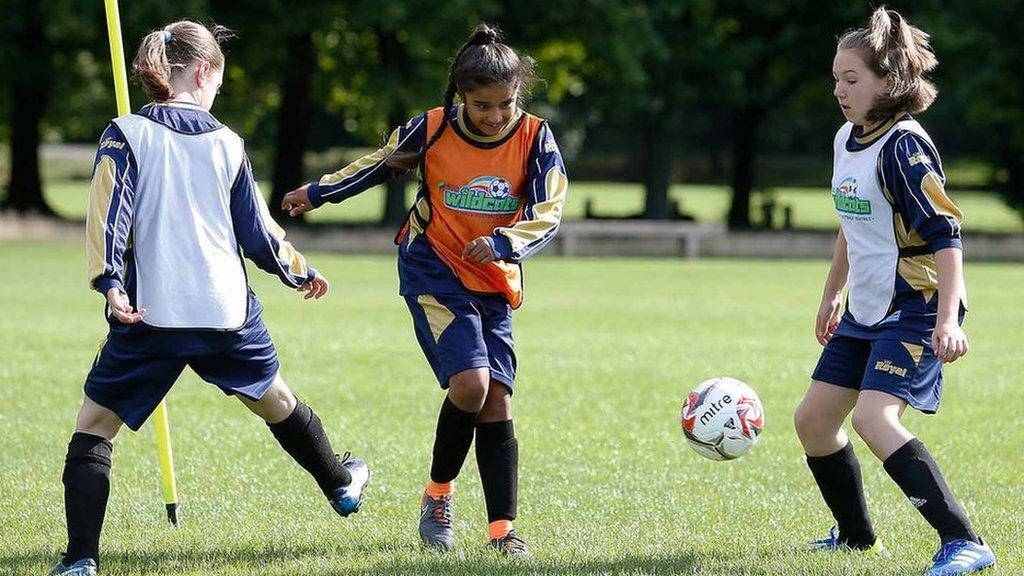
Over 2.7 million women and girls have regularly played football in the last year
Baroness Sue Campbell, The Director of Women's Football at The FA said:
"We want to ensure there is access and opportunity for every girl and woman to play, coach, spectate, officiate, manage or administer if they so wish and the game to be truly representative of our society across all characteristics and social backgrounds."
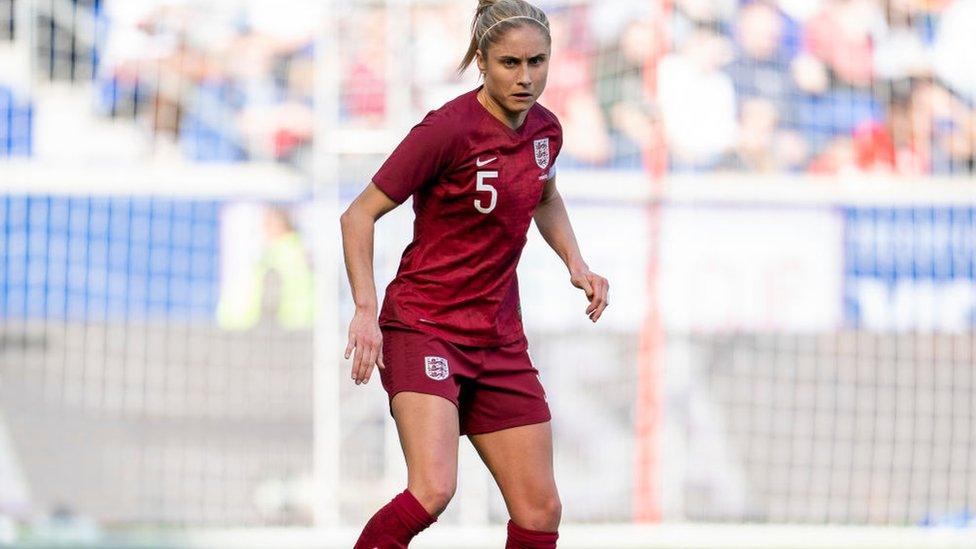
England Women's captain Steph Houghton said the strategy "will help provide opportunities for women and girls of all ages, abilities and backgrounds to fall in love with football"
Growing diversity
The England women's side has far fewer BAME (black, Asian and minority ethnic) players than the men's England team.
At the 2018 Men's World Cup, almost half of the England women's squad was BAME. That was 11 out of 23 players.
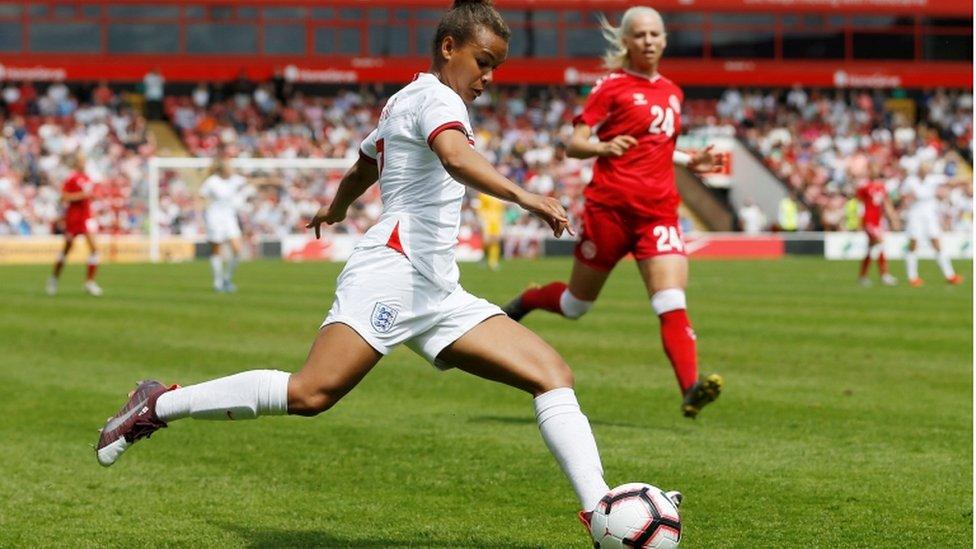
Nikita Parris playing for England against Demark
However a year later, at the 2019 Women's World Cup, the England side only had two out of 23 BAME players.
The FA say they want to work with specialist community groups and inclusion advisory groups, such as the FA Asian Women in Football Advisory Group and The FA Refugees and Asylum-Seekers in Football network, to help develop leaders from diverse communities.
- Published3 November 2019

- Published12 September 2020
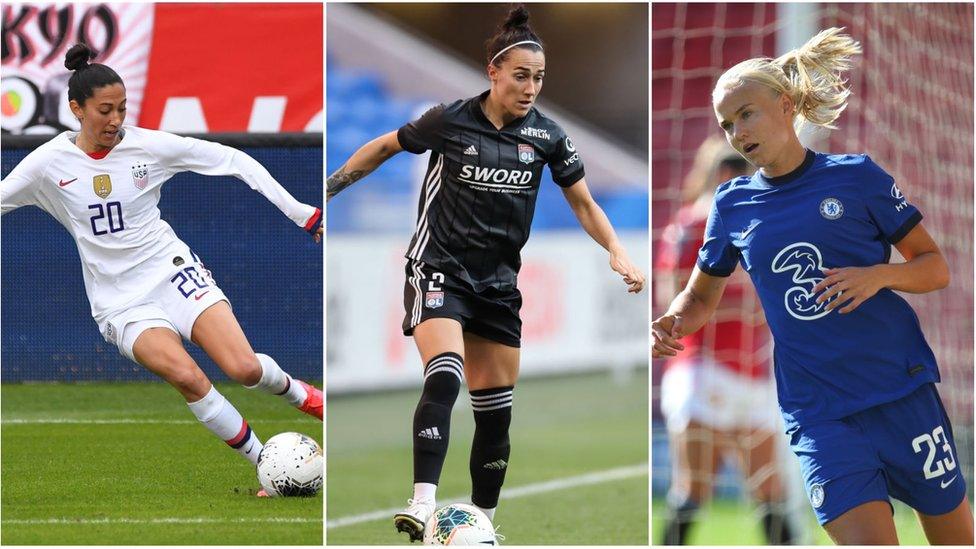
- Published19 October 2020
